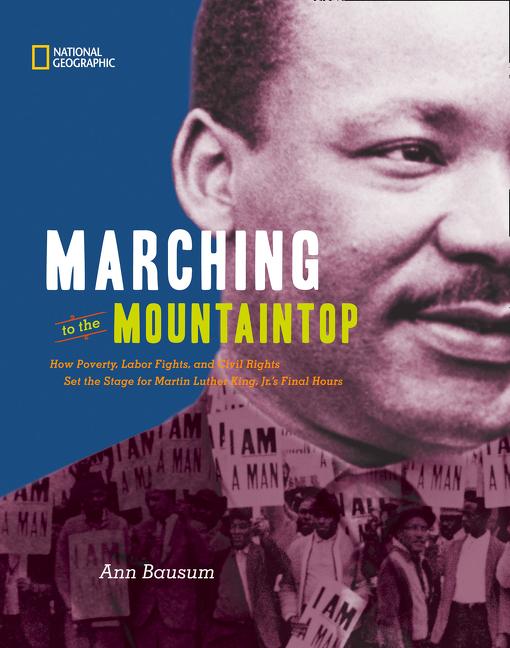Book Description
for Marching to the Mountaintop by Ann Bausum
From Cooperative Children's Book Center (CCBC)
Author Ann Bausum deftly and compellingly explores two connected stories in this exemplary work of research and writing that starts with the strike of Memphis garbage workers in 1968. The workers, all African American men, worked six-day weeks with one fifteen-minute break a day for lunch. They labored each day until their routes were completed, with no compensation for overtime, and were paid so poorly their families lived in poverty. It was the death of two sanitation workers crushed in the back of a garbage truck that finally spurred the strike. Racism stalemated resolution: Memphis mayor Henry Loeb refused to negotiate. Martin Luther King Jr., came to Memphis because the cause of the striking workers resonated with his shifting focus from African American civil rights to poverty. Without ever losing sight of the strike, Bausum emphasizes King’s efforts to ignite a “poor people’s campaign,” and how the Memphis garbage strike became a part of that vision. He was assassinated during his second visit to Memphis to support and rally the workers, and Bausum movingly details his final hours and minutes, and also the aftermath, when the federal government sent in a negotiator and the strike was resolved. Ample back matter includes a timeline of events in Memphis, summaries of King’s various campaigns for civil rights, research notes, a resource guide, and bibliography. There is an abundance of photographs and other visual matter, some of it intentionally echoing photo spreads and design elements of the period. (Age 12 and older)
CCBC Choices 2013. © Cooperative Children's Book Center, Univ. of Wisconsin - Madison, 2013. Used with permission.


